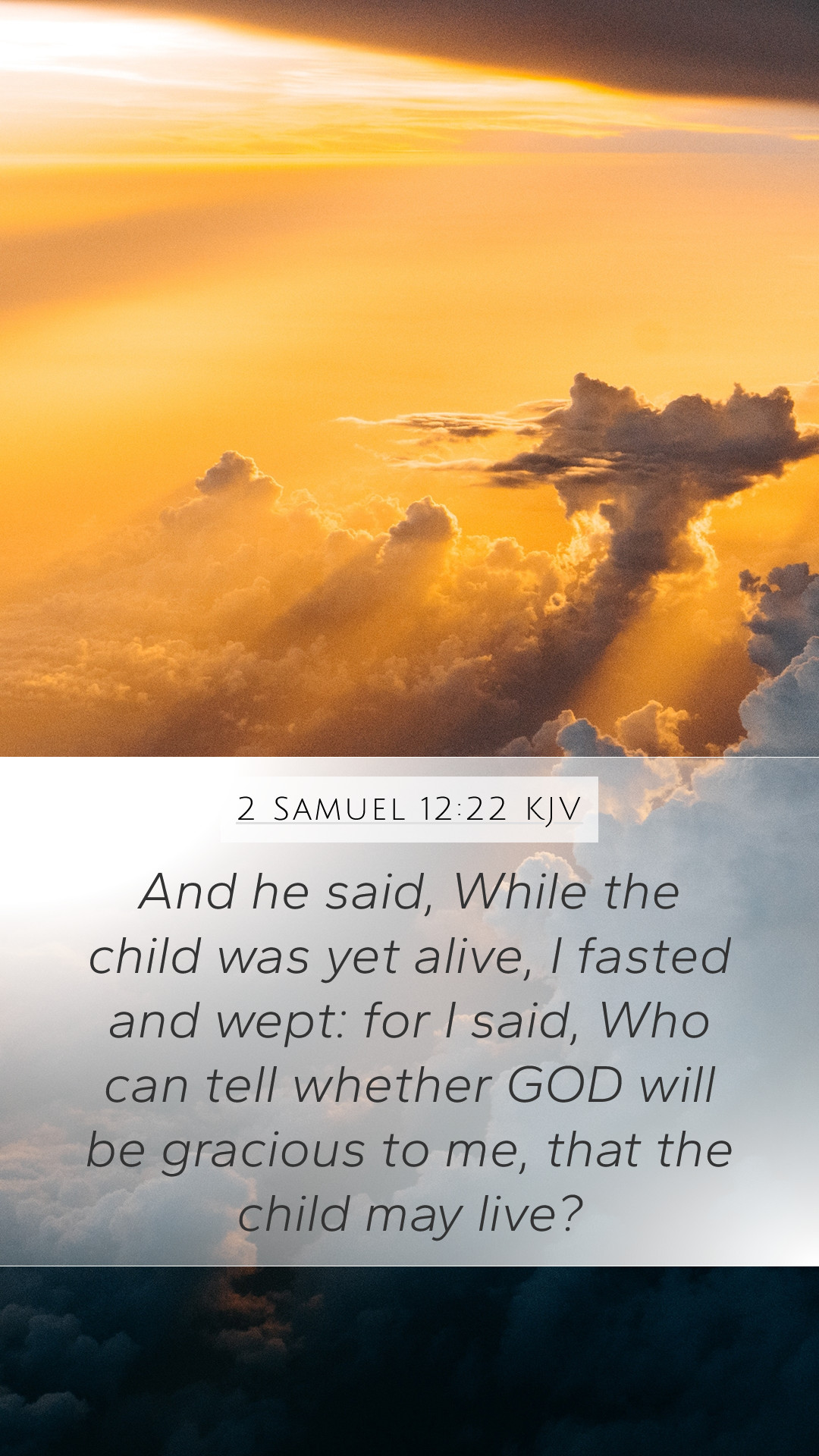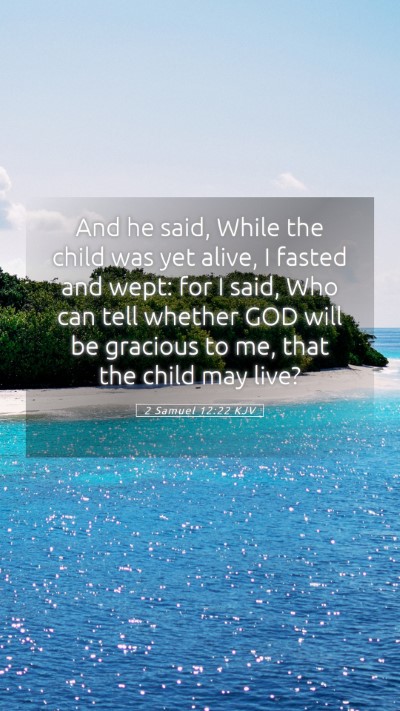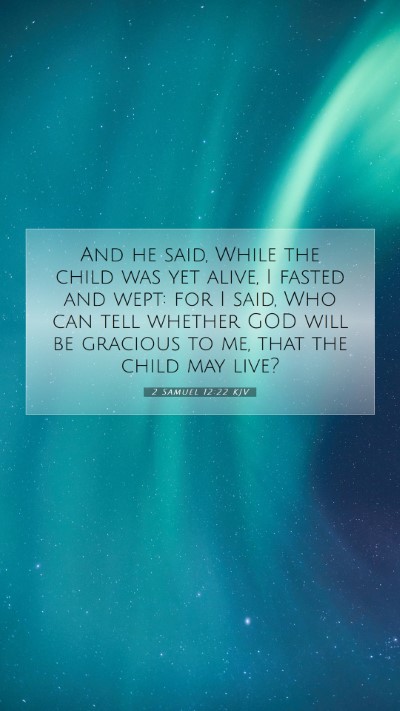Understanding 2 Samuel 12:22
Bible Verse: "But now he is dead, why should I fast? Can I bring him back again? I shall go to him, but he will not return to me."
Bible Verse Explanation
In this verse, King David responds to the death of his infant son, reflecting deep sorrow yet a profound understanding of life and death. This reaction embodies the complex emotions surrounding loss, illustrating a combination of mourning and hope. The essence captured in David's words indicates a transition from desperation to acceptance, marked by a theological assurance of afterlife reunion.
Bible Verse Meaning Through Commentaries
Matthew Henry's Commentary
Matthew Henry highlights David's insightful realization that his fasting—the act of mourning for the child—would not change the outcome of the tragedy. Henry emphasizes that David’s acknowledgment of going to his son in the afterlife speaks to the biblical hope of resurrection and reunion, suggesting that grief can coexist with faith. The act of fasting, in this context, is rendered futile post-death as it does not alter God’s decree, illustrating a lesson on the acceptance of divine will.
Albert Barnes' Notes on the Bible
Albert Barnes elaborates that David's statement, "I shall go to him," signifies his belief in the afterlife and reflects a comforting faith that, although his son cannot return to him, they will be united beyond the grave. This perspective serves as a comfort for those struggling with grief, showing that life continues in another realm. Barnes points out that David shifts from a mindset of despair to one of hope, presenting a key understanding of how the faithful can cope with the death of loved ones.
Adam Clarke's Commentary
Adam Clarke adds that this passage reveals David's profound theological understanding, demonstrating a mature acceptance of God's will. Clarke discusses the implications of David's expressions, where he contrasts the inability to bring back the dead with his personal hope for the afterlife. Such reflections contribute to a balanced understanding of divine justice, mercy, and the continuity of existence beyond earthly life. Clarke underlines that David’s faith offers a template for others undergoing similar trials.
Key Themes and Insights
-
God’s Sovereignty: The verse underscores the acceptance of God’s will, illustrating that human plans may be overturned by divine decrees.
-
Hope in Grief: David’s assurance of future reunion communicates hope amidst sorrow, offering comfort to others mourning the loss of loved ones.
-
The Reality of Death: This verse sheds light on the inevitability of death and encourages believers to maintain faith in God’s larger plan.
-
Nature of Mourning: David’s transition from fasting to acceptance teaches the importance of processing grief in healthy ways, ultimately finding peace.
Commentary Summary
Overall, the collective insights from these commentaries reveal a multifaceted understanding of this poignant moment in King David’s life. 2 Samuel 12:22 serves as a reminder that while grieving is natural, faith provides a pathway to hope and reassurance concerning the afterlife. It encourages readers to be mindful of the enduring promises of God amidst their own experiences of loss and sorrow. Each commentator invites us to reflect not only on the sorrow of loss but also on the profound hope found in God’s eternal promises.
Related Cross References
- 2 Samuel 12:15-21: Context of David's fasting and mourning for his son, highlighting God's judgment and mercy.
- 1 Thessalonians 4:13-14: Encouragement concerning the dead in Christ, reinforcing hope in resurrection.
- Job 14:14: "If a man dies, shall he live again?"—a question that echoes throughout Scripture, relating to the afterlife.
- Psalm 23:4: Assurance of God’s presence even in the shadow of death, reaffirming the comfort of faith.


